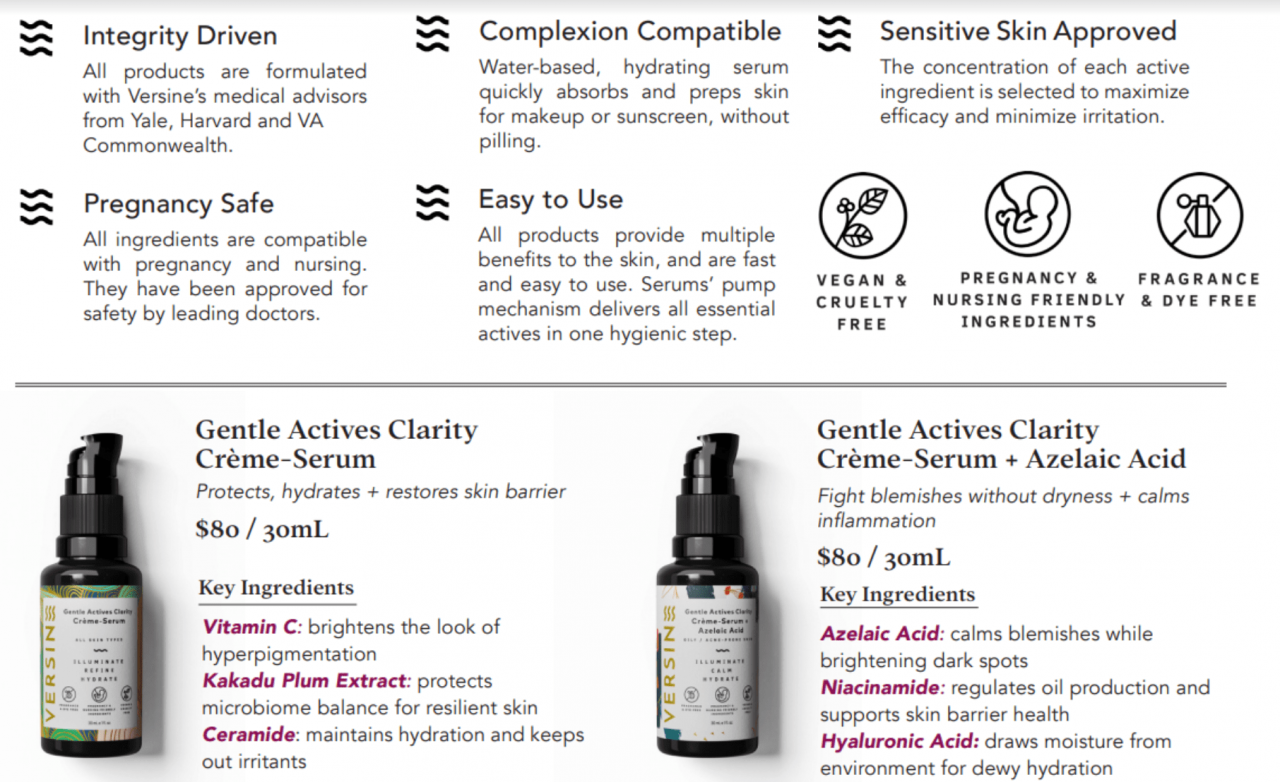Skincare for dehydrated skin is a topic that demands attention, as it affects millions of individuals worldwide. When the skin loses its natural moisture, it becomes dry, flaky, and prone to premature aging. This comprehensive guide will delve into the causes, symptoms, and essential ingredients for dehydrated skin, providing a step-by-step skincare routine, DIY recipes, and practical tips to help you achieve a healthy, hydrated complexion.
Dehydration and Its Impact on Skin
Dehydrated skin is a common skin condition characterized by a lack of moisture. It can be caused by a variety of factors, including environmental conditions, lifestyle choices, and underlying medical conditions.
When the skin is dehydrated, it loses its ability to retain water and becomes dry and flaky. This can lead to a number of symptoms, including:
- Dryness and flaking
- Itching
- Redness
- Fine lines and wrinkles
- Increased sensitivity
In severe cases, dehydrated skin can lead to skin infections.
Physiological Processes in Dehydrated Skin
When the skin is dehydrated, the following physiological processes occur:
- The skin’s natural moisturizing factor (NMF) is depleted.
- The skin’s barrier function is impaired.
- The skin’s pH balance is disrupted.
These changes can lead to a number of skin problems, including dryness, flaking, and irritation.
Prevalence of Dehydrated Skin
Dehydrated skin is a common problem, affecting people of all ages and skin types.
- According to a study published in the Journal of the American Academy of Dermatology, up to 50% of people have dehydrated skin.
- Dehydrated skin is more common in people who live in dry climates, have certain medical conditions, or take certain medications.
Essential Ingredients for Dehydrated Skin: Skincare For Dehydrated Skin
Dehydrated skin lacks moisture, causing it to appear dull, flaky, and prone to wrinkles. Replenishing moisture is crucial for restoring skin health. Several key ingredients can help achieve this.
Humectants
Humectants attract and retain water from the air or deeper skin layers. Examples include hyaluronic acid, glycerin, and urea. Hyaluronic acid is a powerful humectant that can hold up to 1000 times its weight in water, making it highly effective in hydrating the skin.
Emollients
Emollients soften and smooth the skin by filling in gaps between skin cells. Examples include ceramides, fatty acids, and shea butter. Ceramides are lipids naturally found in the skin that help maintain its barrier function and prevent moisture loss.
Occlusives
Occlusives create a protective layer on the skin’s surface, preventing water loss and sealing in moisture. Examples include petrolatum, beeswax, and mineral oil. Petrolatum is a highly effective occlusive that forms a waterproof barrier on the skin, preventing evaporation.
Skincare Products Containing These Ingredients
Many skincare products contain a combination of these ingredients to provide comprehensive hydration. Look for products that contain hyaluronic acid, ceramides, and petrolatum for optimal results.
Skincare Routine for Dehydrated Skin
Maintaining a healthy skincare routine is essential for keeping your skin hydrated and glowing. Dehydrated skin requires special care to replenish its moisture levels and prevent further dryness. Here’s a step-by-step guide to help you create a skincare routine tailored specifically for dehydrated skin:
Cleansing
Cleansing is the first and most important step in any skincare routine. For dehydrated skin, it’s crucial to choose a gentle cleanser that doesn’t strip your skin of its natural oils. Opt for a cleanser that contains hydrating ingredients like hyaluronic acid or glycerin.
- CeraVe Hydrating Cleanser: This gentle, fragrance-free cleanser is formulated with ceramides and hyaluronic acid to cleanse and hydrate the skin without over-drying.
- La Roche-Posay Toleriane Hydrating Gentle Cleanser: This cleanser is suitable for even the most sensitive skin types. It contains prebiotic thermal water to soothe and protect the skin’s barrier.
Moisturizing
Moisturizing is key for dehydrated skin. Look for a moisturizer that is rich in humectants, which help to draw moisture into the skin. Ceramides and fatty acids are also important ingredients to look for, as they help to strengthen the skin’s barrier and prevent water loss.
Indulge in the world of skincare with the latest skincare hashtags that will keep your skin glowing and radiant. From the bustling streets of Tangerang, discover the renowned klinik skincare tangerang for expert treatments and tailored solutions. Embark on a journey of natural skincare with oliveda skincare , harnessing the power of organic ingredients to rejuvenate your skin.
And for those seeking a holistic approach, comfort zone skincare offers a range of innovative products that nurture both your skin and your well-being.
- Cetaphil Moisturizing Cream: This fragrance-free, non-comedogenic moisturizer is suitable for all skin types. It contains ceramides, glycerin, and hyaluronic acid to deeply hydrate and protect the skin.
- Drunk Elephant Lala Retro Whipped Cream: This rich, whipped moisturizer contains a blend of ceramides, amino acids, and fatty acids to nourish and repair the skin’s barrier.
Protecting from Sun Damage
Sun damage is one of the leading causes of dehydration. It’s essential to protect your skin from the sun’s harmful rays by wearing sunscreen every day, even when it’s cloudy. Choose a sunscreen that is broad-spectrum and has an SPF of 30 or higher.
- EltaMD UV Clear Broad-Spectrum SPF 46: This lightweight, oil-free sunscreen is suitable for all skin types. It provides broad-spectrum protection and is non-comedogenic, so it won’t clog pores.
- La Roche-Posay Anthelios Mineral Sunscreen SPF 50: This mineral sunscreen is gentle on the skin and provides broad-spectrum protection. It is water-resistant for up to 80 minutes.
DIY Skincare Recipes for Dehydrated Skin
Harnessing the power of nature, DIY skincare recipes can provide gentle yet effective solutions for dehydrated skin. Using natural ingredients ensures minimal irritation while delivering nourishing benefits.
Cucumber and Aloe Vera Mask, Skincare for dehydrated skin
Ingredients:
- 1/2 cucumber, peeled and sliced
- 1/4 cup aloe vera gel
Instructions:
- Blend cucumber and aloe vera gel until smooth.
- Apply to cleansed face and neck, avoiding eyes.
- Leave on for 15-20 minutes, then rinse with cool water.
Benefits:
- Cucumber hydrates and soothes the skin.
- Aloe vera has anti-inflammatory properties that reduce redness and irritation.
Honey and Yogurt Mask
Ingredients:
- 1 tablespoon honey
- 1 tablespoon plain yogurt
Instructions:
- Mix honey and yogurt until well combined.
- Apply to cleansed face and neck, avoiding eyes.
- Leave on for 15-20 minutes, then rinse with lukewarm water.
Benefits:
- Honey is a humectant that draws moisture into the skin.
- Yogurt contains lactic acid, which gently exfoliates and brightens the skin.
Oatmeal and Avocado Mask
Ingredients:
- 1/4 cup rolled oats
- 1/2 ripe avocado, mashed
Instructions:
- Grind oats into a fine powder.
- Mix oats and mashed avocado until smooth.
- Apply to cleansed face and neck, avoiding eyes.
- Leave on for 15-20 minutes, then rinse with warm water.
Benefits:
- Oatmeal soothes and reduces inflammation.
- Avocado is rich in vitamins and fatty acids that nourish and hydrate the skin.
Tips for Maintaining Hydrated Skin
Maintaining hydrated skin is crucial for its overall health and appearance. Here are some practical tips to help you achieve and maintain well-hydrated skin:
To begin with, drinking an adequate amount of water is essential. Aim to consume at least eight glasses of water per day to keep your body and skin hydrated. In addition, using a humidifier can help to add moisture to the air, especially during dry seasons or in dry climates.
Indulge in the captivating world of skincare with skincare hashtags , a vibrant tapestry of inspiration and discovery. Whether you’re seeking expert advice from klinik skincare Tangerang or embracing the transformative power of Oliveda skincare , these hashtags connect you to a wealth of knowledge and like-minded enthusiasts.
Embrace the holistic approach of Comfort Zone skincare , where nature’s wisdom harmonizes with advanced science to reveal your skin’s radiant potential.
Avoid using harsh skincare products that contain alcohol or fragrances, as these can strip your skin of its natural oils and lead to dehydration.
Lifestyle Factors
Lifestyle factors also play a significant role in skin health. Getting enough sleep, managing stress, and eating a healthy diet can all contribute to maintaining hydrated skin. Sleep deprivation can lead to dehydration, so aim for 7-9 hours of quality sleep each night.
Stress can also trigger dehydration, so find healthy ways to manage stress, such as exercise, meditation, or yoga. Eating a balanced diet that includes plenty of fruits, vegetables, and whole grains can provide your skin with the nutrients it needs to stay healthy and hydrated.
Seasonal Adjustments
It’s important to adjust your skincare routine based on seasonal changes. During the summer months, when the weather is hot and humid, you may need to use a lighter moisturizer or switch to a gel-based formula. In the winter months, when the weather is cold and dry, you may need to use a thicker moisturizer or add a hydrating serum to your routine.
By adjusting your skincare routine based on the season, you can help to keep your skin hydrated and healthy all year round.
Closing Summary
Maintaining hydrated skin requires a holistic approach that encompasses not only skincare products but also lifestyle habits. By following the tips Artikeld in this guide, you can restore your skin’s moisture balance, prevent dehydration, and achieve a radiant, youthful glow that reflects your inner beauty.
FAQ Overview
What are the key signs of dehydrated skin?
Dehydrated skin is characterized by dryness, flakiness, tightness, dullness, and increased sensitivity.
How often should I moisturize dehydrated skin?
Moisturize your skin twice a day, morning and night, or more frequently if needed.
Can I use a humidifier to help my dehydrated skin?
Yes, a humidifier can add moisture to the air, which can help hydrate your skin.





Leave a Reply